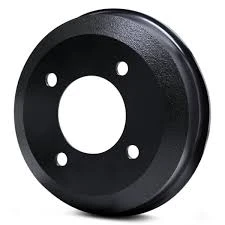
-
 Afrikaans
Afrikaans -
 Albanian
Albanian -
 Amharic
Amharic -
 Arabic
Arabic -
 Armenian
Armenian -
 Azerbaijani
Azerbaijani -
 Basque
Basque -
 Belarusian
Belarusian -
 Bengali
Bengali -
 Bosnian
Bosnian -
 Bulgarian
Bulgarian -
 Catalan
Catalan -
 Cebuano
Cebuano -
 Corsican
Corsican -
 Croatian
Croatian -
 Czech
Czech -
 Danish
Danish -
 Dutch
Dutch -
 ភាសាអង់គ្លេស
ភាសាអង់គ្លេស -
 Esperanto
Esperanto -
 Estonian
Estonian -
 Finnish
Finnish -
 French
French -
 Frisian
Frisian -
 Galician
Galician -
 Georgian
Georgian -
 German
German -
 Greek
Greek -
 Gujarati
Gujarati -
 Haitian Creole
Haitian Creole -
 hausa
hausa -
 hawaiian
hawaiian -
 Hebrew
Hebrew -
 Hindi
Hindi -
 Miao
Miao -
 Hungarian
Hungarian -
 Icelandic
Icelandic -
 igbo
igbo -
 Indonesian
Indonesian -
 irish
irish -
 Italian
Italian -
 Japanese
Japanese -
 Javanese
Javanese -
 Kannada
Kannada -
 kazakh
kazakh -
 Khmer
Khmer -
 Rwandese
Rwandese -
 Korean
Korean -
 Kurdish
Kurdish -
 Kyrgyz
Kyrgyz -
 Lao
Lao -
 Latin
Latin -
 Latvian
Latvian -
 Lithuanian
Lithuanian -
 Luxembourgish
Luxembourgish -
 Macedonian
Macedonian -
 Malgashi
Malgashi -
 Malay
Malay -
 Malayalam
Malayalam -
 Maltese
Maltese -
 Maori
Maori -
 Marathi
Marathi -
 Mongolian
Mongolian -
 Myanmar
Myanmar -
 Nepali
Nepali -
 Norwegian
Norwegian -
 Norwegian
Norwegian -
 Occitan
Occitan -
 Pashto
Pashto -
 Persian
Persian -
 Polish
Polish -
 Portuguese
Portuguese -
 Punjabi
Punjabi -
 Romanian
Romanian -
 Russian
Russian -
 Samoan
Samoan -
 Scottish Gaelic
Scottish Gaelic -
 Serbian
Serbian -
 Sesotho
Sesotho -
 Shona
Shona -
 Sindhi
Sindhi -
 Sinhala
Sinhala -
 Slovak
Slovak -
 Slovenian
Slovenian -
 Somali
Somali -
 Spanish
Spanish -
 Sundanese
Sundanese -
 Swahili
Swahili -
 Swedish
Swedish -
 Tagalog
Tagalog -
 Tajik
Tajik -
 Tamil
Tamil -
 Tatar
Tatar -
 Telugu
Telugu -
 Thai
Thai -
 Turkish
Turkish -
 Turkmen
Turkmen -
 Ukrainian
Ukrainian -
 Urdu
Urdu -
 Uighur
Uighur -
 Uzbek
Uzbek -
 Vietnamese
Vietnamese -
 Welsh
Welsh -
 Bantu
Bantu -
 Yiddish
Yiddish -
 Yoruba
Yoruba -
 Zulu
Zulu
Understanding Brake Drum Overheating
Understanding Brake Drum Overheating Causes and Solutions
Brake systems are a critical component of vehicle safety, ensuring that you can stop effectively when necessary. One common issue that drivers may experience is brake drum overheating, which can lead to a range of problems, including reduced braking performance and potential damage to the brake system. This article delves into the causes of brake drum overheating and suggests solutions to mitigate this issue.
Causes of Brake Drum Overheating
1. Excessive Use of Brakes Frequent or prolonged braking, especially in hilly or mountainous terrains, can lead to increased friction between the brake shoes and the drum. This generated friction produces heat, which can quickly raise the temperature of the brake drum.
2. Improper Brake Adjustment If the brake shoes are not correctly adjusted, it can lead to continuous contact with the drum, causing persistent friction and elevating temperatures. Proper adjustment allows for optimal clearance, reducing undue heat generation.
3. Worn Brake Components Over time, brake shoes, drums, and other components may wear down. Worn-out parts can lead to inefficient braking, requiring more force and prolonged engagement, which generates excess heat.
4. Moisture or Contaminants Exposure to moisture or oil can significantly impair the braking system's efficiency. When brake drums become wet or contaminated, the shoes may not grip effectively, causing drivers to press the brakes harder, generating more heat.
5. Heavy Loads Carrying a heavy load or towing can put additional strain on the braking system. This added weight necessitates more braking force, which can quickly lead to overheating.
Signs of Overheating
brake drum getting hot

There are several signs that indicate your brake drums may be overheating. These include a burning smell during or after driving, a noticeable decrease in braking efficiency, and visual inspection of the drums that may show discoloration or warping. In severe cases, the brakes may make grinding or squealing noises, indicating significant wear or damage.
Solutions to Prevent Overheating
1. Regular Maintenance Routine inspections of your braking system can catch issues early. Check for wear and tear on brake drums and shoes, and ensure proper adjustment is maintained.
2. Brake Cooling If you frequently drive in conditions that require heavy braking, consider using brake cooling systems. These can help dissipate heat more efficiently and maintain optimal performance.
3. Driving Techniques Be mindful of your driving habits. Anticipate stops and decelerate gradually whenever possible to decrease brake use.
4. Use of High-Quality Parts Invest in quality brake components that are designed to withstand higher temperatures. Upgrading to better materials can enhance performance and longevity.
5. Weight Management Avoid overloading your vehicle. Understand your vehicle’s weight limit and make adjustments as necessary, especially when towing or carrying heavy loads.
Conclusion
Brake drum overheating is a serious concern that should not be ignored. Understanding the causes and symptoms can help you take proactive measures to ensure the longevity and reliability of your brake system. By adopting good driving habits and maintaining your vehicle's brake components, you can help prevent overheating and keep your vehicle safe on the road. Regular attention to your vehicle's brake system is not just a recommendation; it's essential for your safety and the safety of others on the road.
-
Rear Drum Brakes Maintenance Tipsព័ត៌មានAug.04,2025
-
Key Components Affecting Brake Drum Functionព័ត៌មានAug.04,2025
-
Important Inspection for Truck Drum Brakeព័ត៌មានAug.04,2025
-
How to Prepare for Changing Rear Drum Brakesព័ត៌មានAug.04,2025
-
Essential Tools for Cleaning Drum Brakes Properlyព័ត៌មានAug.04,2025
-
Brake Drum Function Guideព័ត៌មានAug.04,2025
-
Safety Features of Red Brake Drumsព័ត៌មានAug.01,2025
